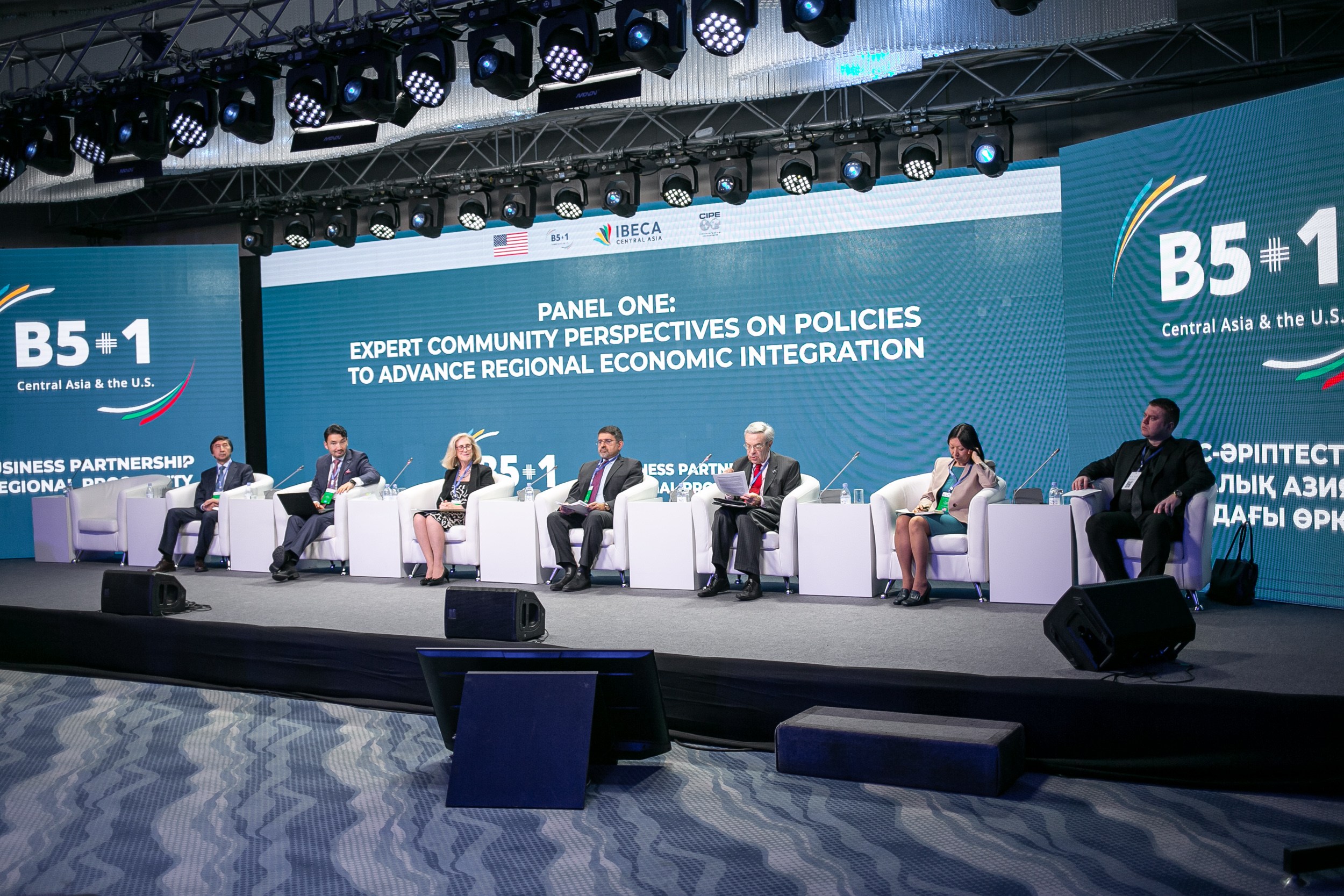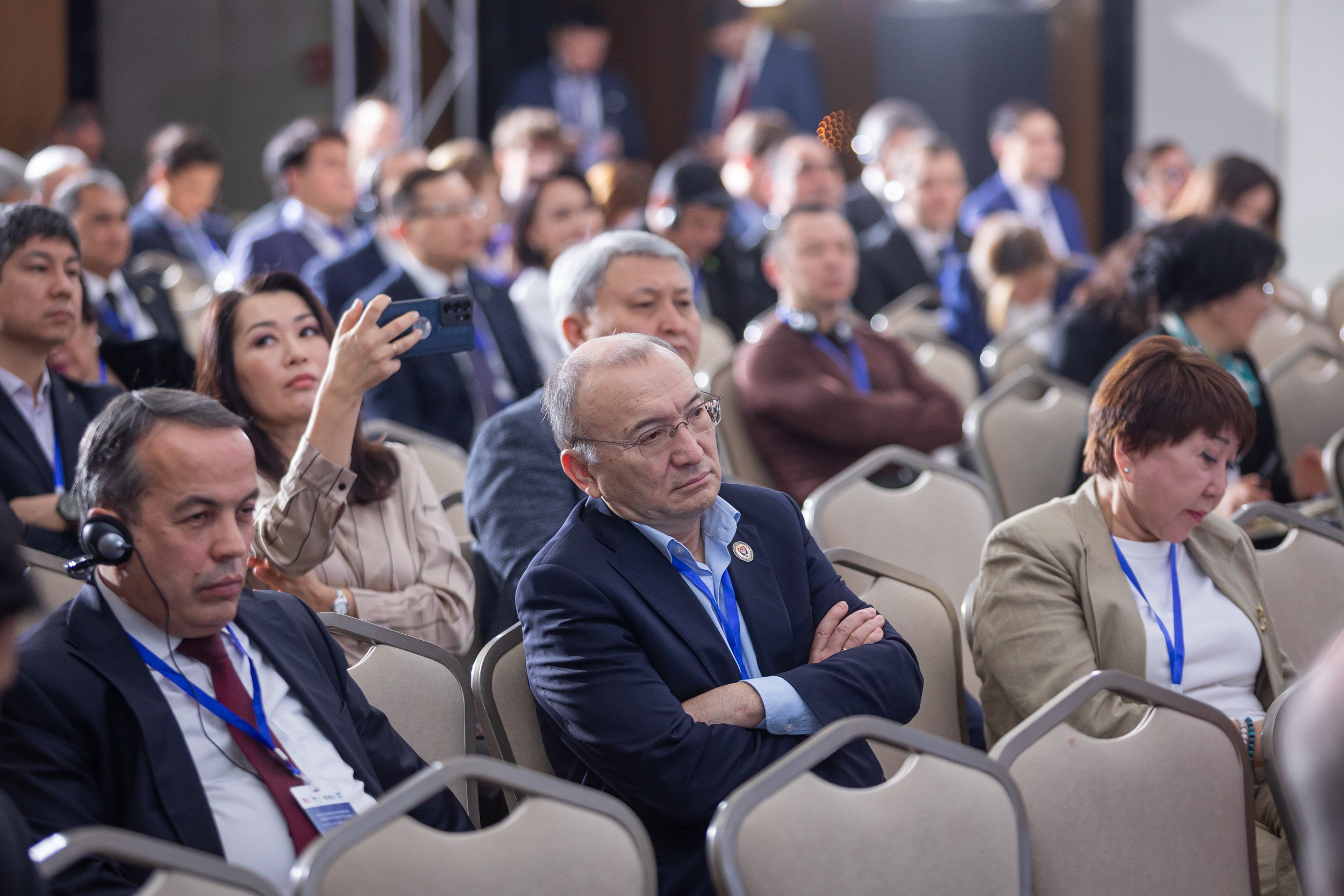ASTANA – Almaty hosted the inaugural B5+1 format forum with the participation of government and business community officials of the United States and Central Asian countries – Kazakhstan, the Kyrgyz Republic, Uzbekistan, Tajikistan and Turkmenistan on March 14-15, reported the forum’s press service on March 15.

Photo credit: Almaz Toleke/ Press service of the conference
The two-day forum prioritized accelerated regional cooperation, improved connectivity, and a more favorable business environment through the public-private dialogue process.
A joint statement from the business community was presented based on the results of discussions and proposals at the forum. The document offers a number of specific recommendations for improving the business environment and attracting investment to Central Asia by strengthening the role of the private sector in cooperation with the governments of the region and the investment community in the United States and other partners.

Photo credit: Almaz Toleke/ Press service of the conference
According to the experts, Central Asia “can benefit from a more integrated market with strong economic and business ties.” This can attract more foreign investment from the United States and the rest of the world.
Expanding cooperation between Central Asian countries, experts noted, will diversify East-West trade corridors and increase access to global markets.

Photo credit: Almaz Toleke/ Press service of the conference
During the first day of the forum, Kazakh Deputy National Economy Minister Timur Zhaksylykov outlined that the trade volume between the Central Asian countries has exceeded $11 billion.
“Mutual trade between our countries is developing and over the past 10 years it has increased by 2.5 times, reaching almost $11 billion. Kazakhstan accounts for around 70% of it. The country’s export alone stands at $5.5 billion to our neighboring countries. In the past few years, Kazakhstan has funneled tens of billions of dollars in the development of thousand kilometers of railways, motorways for transit and export routes,” he said.
Zhaksylykov noted that by trading the countries create more jobs and contribute to social and economic prosperity. He emphasized that greater regional cooperation and investment climate are key factors for the promotion of economic cooperation and improvement of business climate in Central Asia.
According to Nicholas Berliner, the special assistant to the U.S. President and senior director for Russia and Central Asia, the B5+1 forum is a catalyst for regional economic integration, extending beyond Central Asia.
“The present moment represents an opportunity for the countries of Central Asia to advance new partnerships, and the United States wants to be a constructive partner – to help Central Asia build its resilience and bolster its economic strength. There is significant potential in Central Asia, and the more connectivity and collaboration we have among the countries in Central Asia, the stronger that market is going to be, the more investment it is going to attract from the United States and other countries, and the more resilient this region will be,” Berliner said in his welcoming remarks.
Berliner also spoke about the U.S. companies thriving in the region in key industries, including critical minerals, transportation, agriculture, and digital connectivity.
“In September, Westinghouse Air Brake Technologies Corporation (Wabtec) announced that it intends to invest $1 billion in rail logistics in Kazakhstan and start the production of hydrogen-fueled locomotives. Kazakhstan’s national railway company also plans to upgrade its fleet by using a $900 million loan from American Citibank to purchase 240 Wabtec locomotives,” he said.
Kazakh Deputy Prime Minister and National Economy Minister Nurlan Baibazarov said that the forum is a platform for sharing experiences and ideas, providing an opportunity to find solutions in different topics.
“The issues we face are complex and interconnected. From infrastructure development to trade procedures simplification, from regulatory framework to capacity building. With the use of dialogue, we can define areas of common interest, share ideas and collectively develop solutions for each sector,” said Baibazarov.
Based on the results of active discussions and proposals, the business community presented a joint statement. The document offers a number of specific recommendations for improving the business environment and attracting investment to Central Asia through strengthening the role of the private sector in active cooperation with the governments of the region and the investment community in the United States and the outside world.
Facilitated by the Center for International Private Enterprise (CIPE), an affiliate of the U.S. Chamber of Commerce, the initiative identified five priority industries critical to the development of the regional markets: transportation and logistics; e-commerce; tourism, green and renewable energy; and agribusiness.
The sides agreed to hold the B5+1 Forum annually, with sponsorship rotated among member countries and create a B5+1 subgroup on women’s entrepreneurship to continue dialogue and joint action in expanding women’s business opportunities in Central Asia.
